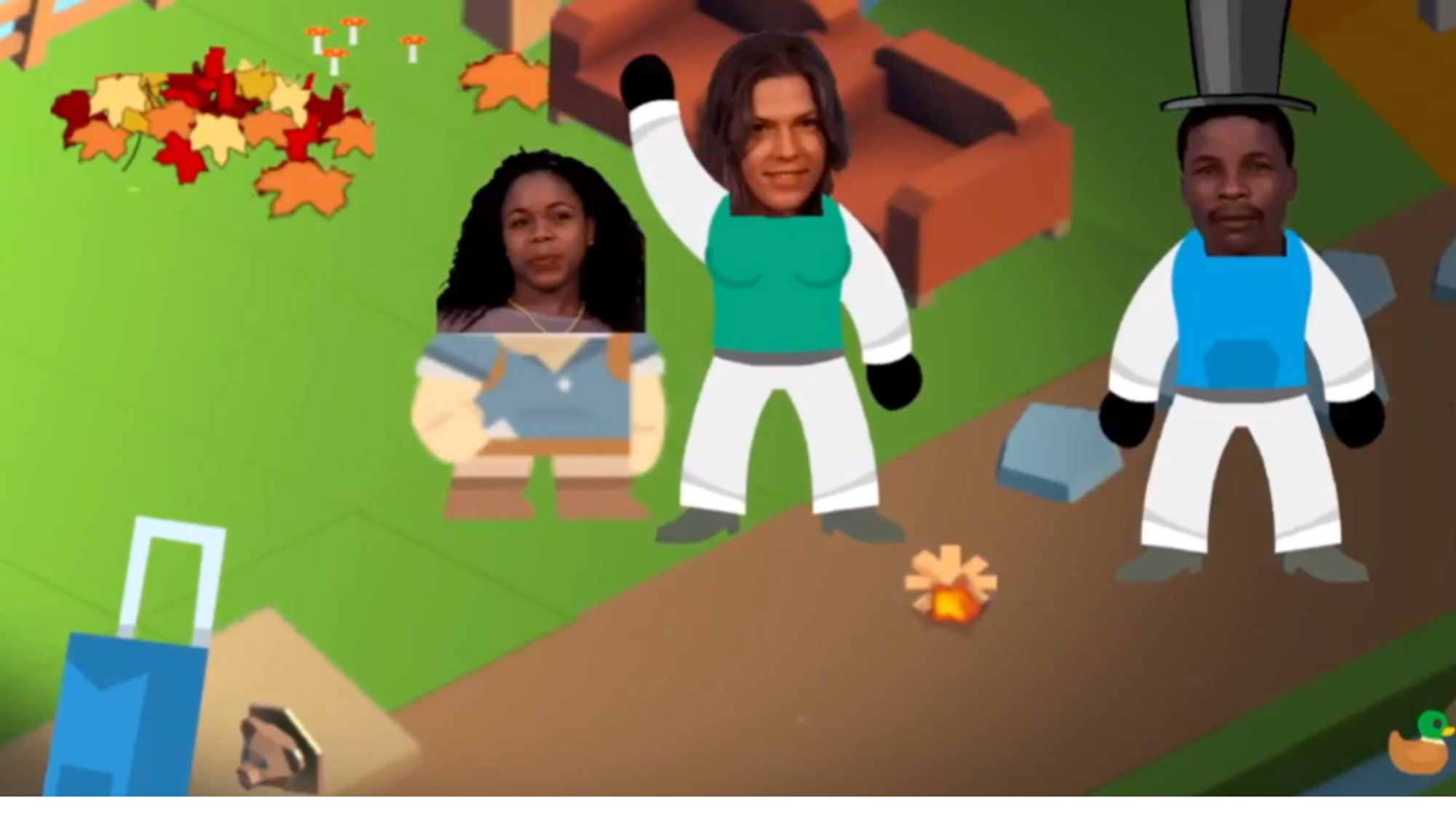I’m presenting a poster tomorrow at CogSci2024 on osf.io/preprints/ps... (P2-LL-552)
Participants actively constructed narratives with systematically manipulated abstract event features to investigate how such abstract event features contribute to updating situation models (2/2)Participants actively constructed narratives with systematically manipulated abstract event features to investigate how such abstract event features contribute to updating situation models (2/2)
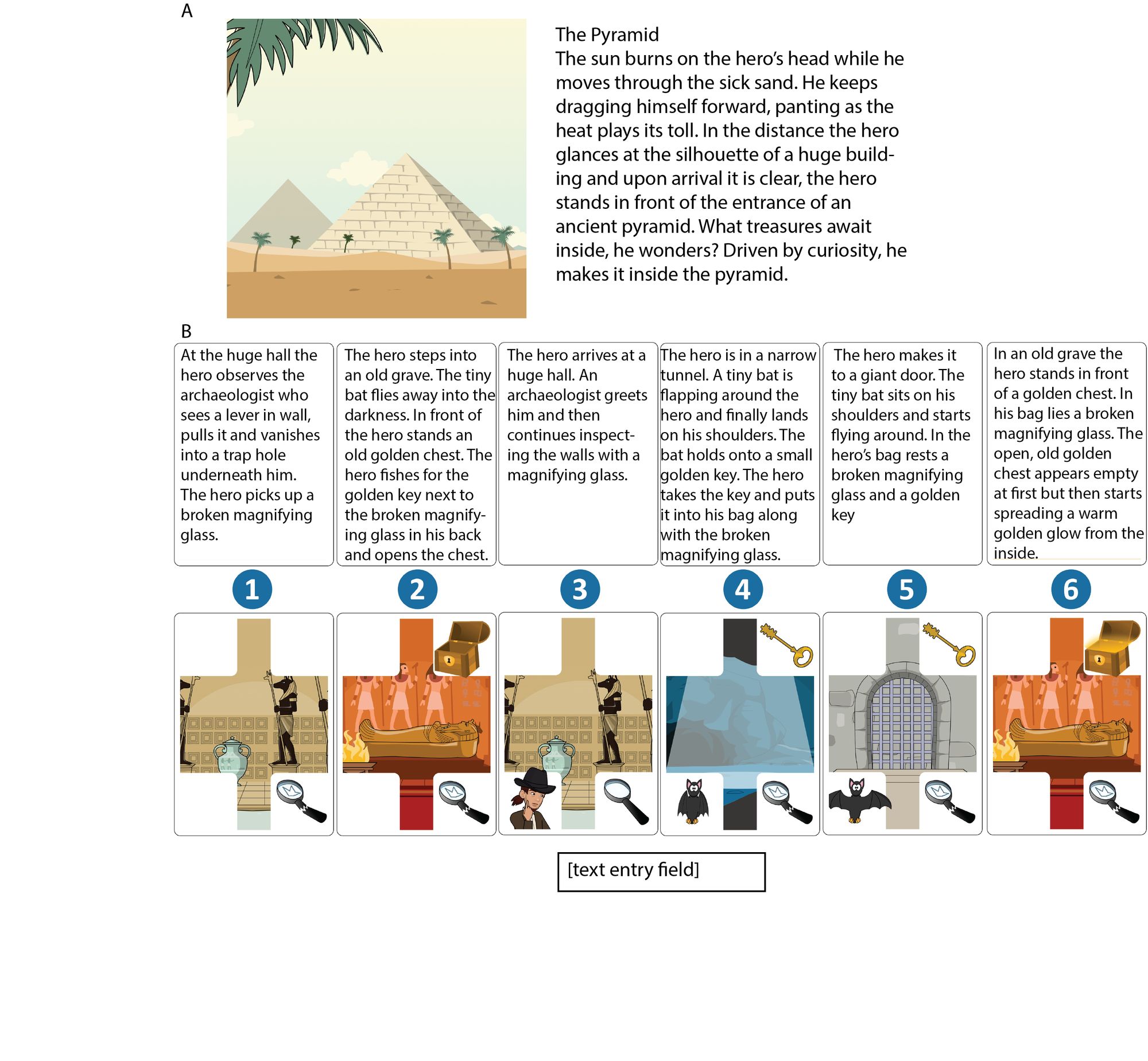
New preprint! Ingredients of a narrative: How an abstract feature space and event position contribute to a situation model, led by Rene Terporten, with Roel Willems and Monique Flecken. https://osf.io/preprints/psyarxiv/2cjru (1/2)
Our paper on how blocked training supports learning of multiple schemas, with Andre Beukers, @collinsilvy.bsky.social@gershbrain.bsky.socialrdcu.be/dEeaG#neuroskyence#psychscisky
Of these 3 history-dependent codes, only the schema code correlated (within-participants) with subsequent episodic memory; this provides converging neural support for the idea that schemas act to scaffold memory for unique episodic details. (8/8)Of these 3 history-dependent codes, only the schema code correlated (within-participants) with subsequent episodic memory; this provides converging neural support for the idea that schemas act to scaffold memory for unique episodic details. (8/8)
Additionally, we discovered that medial occipital regions code for the preceding ritual in a rotated fashion compared to the current ritual, likely to avoid interference. (7/8)Additionally, we discovered that medial occipital regions code for the preceding ritual in a rotated fashion compared to the current ritual, likely to avoid interference. (7/8)
We discovered a North-South schema code in the thalamus, pallidum, caudate, posterior medial cortex, hippocampus, parahippocampus, fusiform gyrus, inferior and superior temporal regions, temporal pole, superior frontal regions and a sequence (i.e., path) code in postcentral gyrus. (6/8)We discovered a North-South schema code in the thalamus, pallidum, caudate, posterior medial cortex, hippocampus, parahippocampus, fusiform gyrus, inferior and superior temporal regions, temporal pole, superior frontal regions and a sequence (i.e., path) code in postcentral gyrus. (6/8)
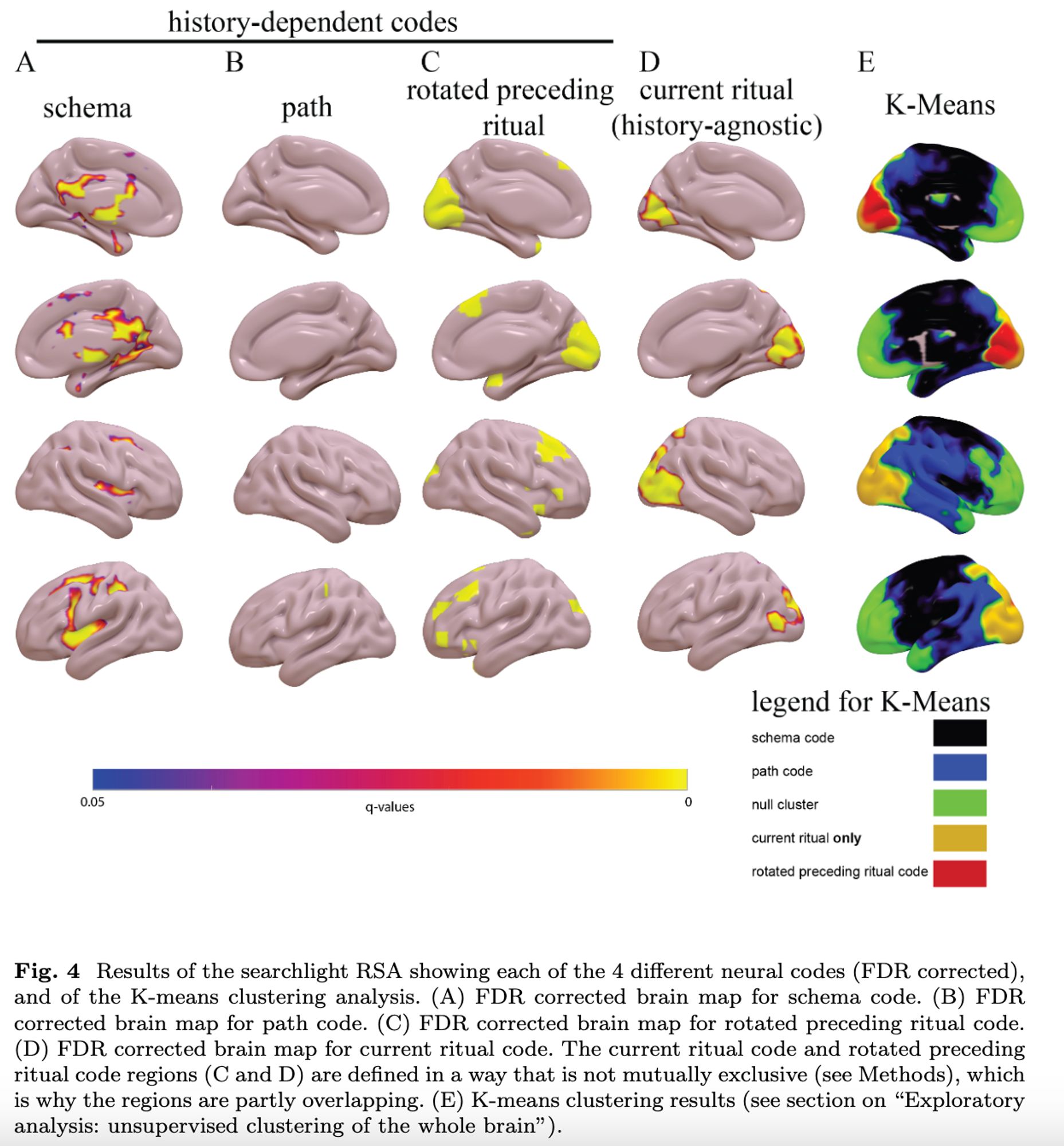
A key feature of the design is that it allowed us to separately measure, on a per-wedding basis, neural codes relating to the North/South schema, specific sequences (paths), the preceding ritual, and the current ritual. (5/8)A key feature of the design is that it allowed us to separately measure, on a per-wedding basis, neural codes relating to the North/South schema, specific sequences (paths), the preceding ritual, and the current ritual. (5/8)
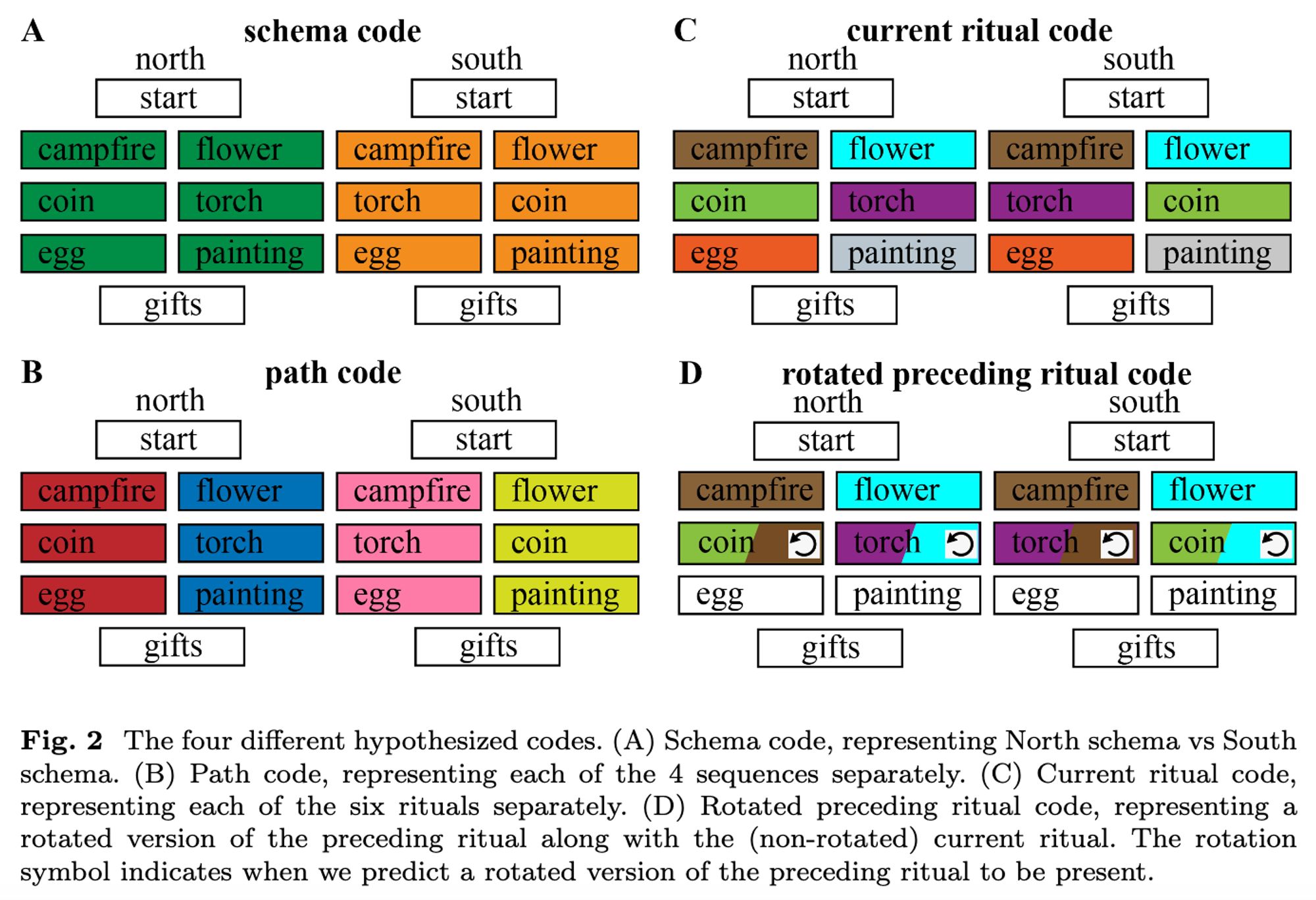
Participants had to learn through experience that the transition structure of the ritual sequences was determined by whether the couple was from the North or South of an Island. (4/8)Participants had to learn through experience that the transition structure of the ritual sequences was determined by whether the couple was from the North or South of an Island. (4/8)
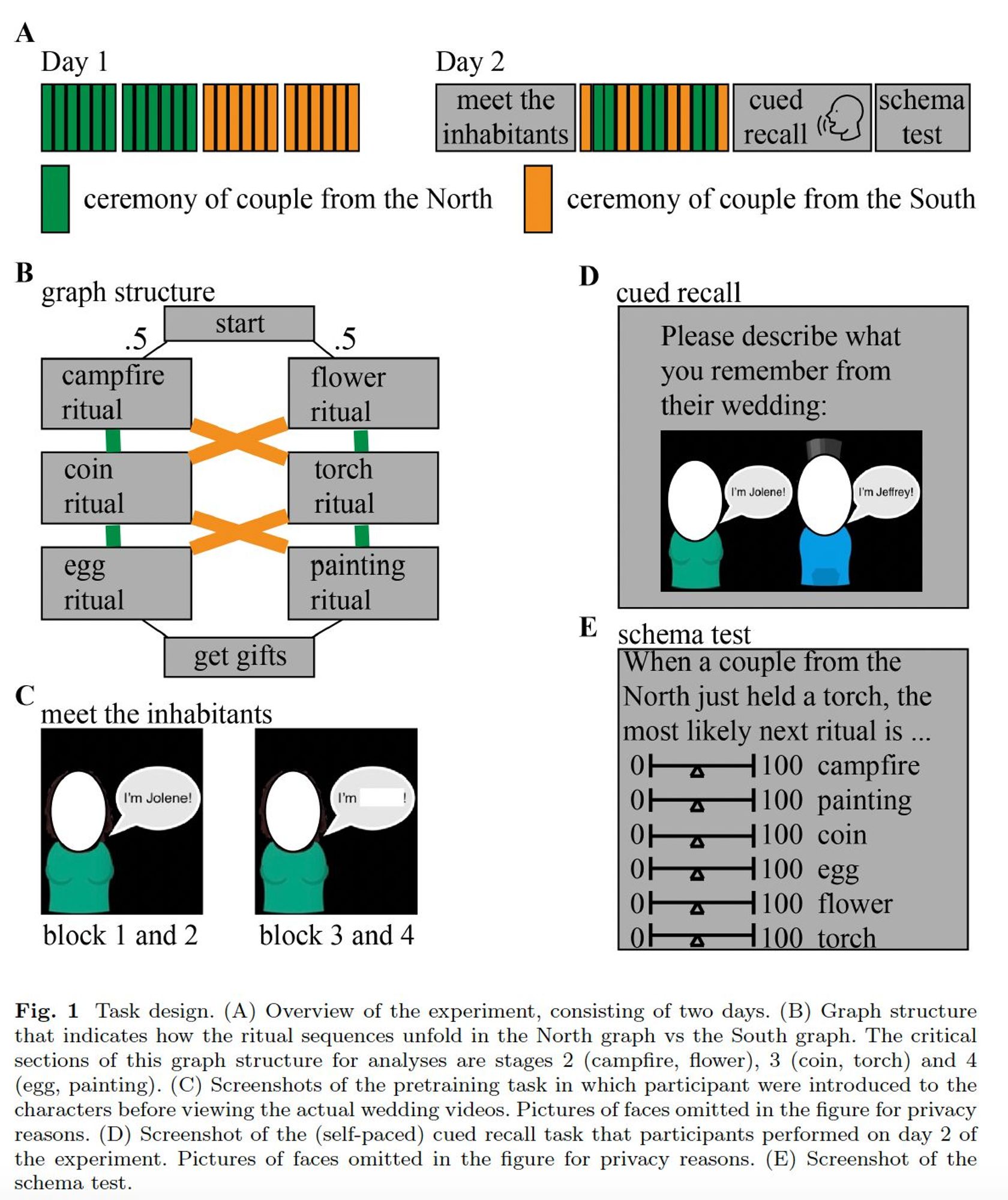
Participants viewed computer-animated videos of weddings, where the weddings were composed of sequences of made-up rituals. Weddings also included unique episodic details that participants were asked to recall later. (3/8)Participants viewed computer-animated videos of weddings, where the weddings were composed of sequences of made-up rituals. Weddings also included unique episodic details that participants were asked to recall later. (3/8)
